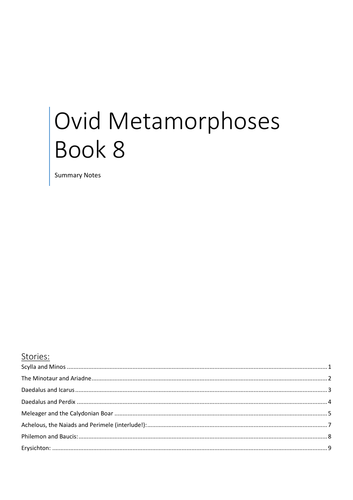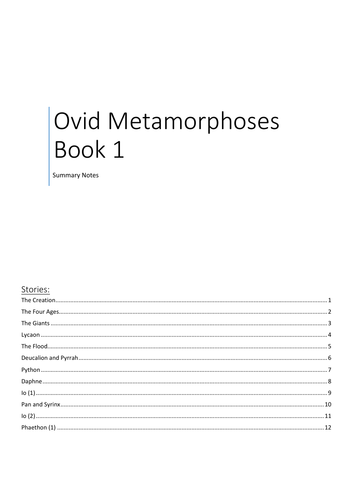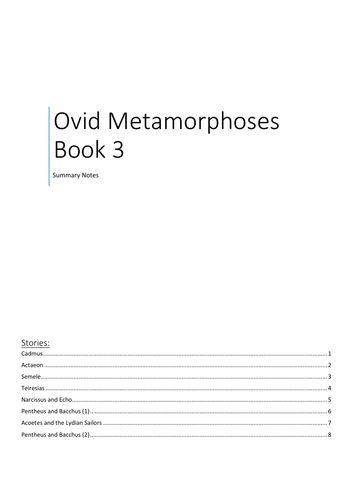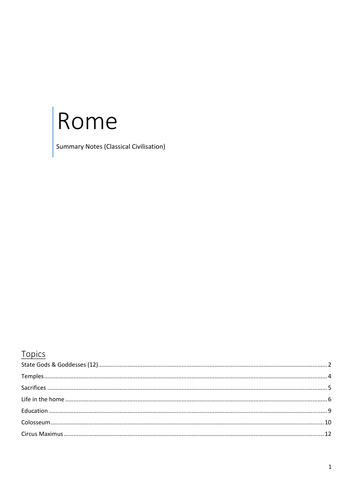
4Uploads
222Views
3Downloads
All resources

Ovid Metamorphoses summary notes (book 8)
Summary notes for Ovid’s Metamorphoses Book 8. Originally created for GCSE Classical Civilisation. Ideal for revision but can be used alongside reading stories to aid understanding.
Formatted as bullet points covering all the main points of each of the stories.
The following stories are included:
Book 8
Scylla and Minos
The Minotaur and Ariadne
Daedalus and Icarus
Daedalus and Perdix
Meleager and the Calydonian Boar
Achelous, the Naiads and Perimile
Philemon and Baucis
Erysichthon

Ovid Metamorphoses summary notes (book 1)
Summary notes for Ovid’s Metamorphoses Book 1. Originally created for GCSE Classical Civilisation. Ideal for revision but can be used alongside reading stories to aid understanding.
Formatted as bullet points covering all the main points of each of the stories.
The following stories are included:
Book 1
The Creation
The Four Ages
The Giants
Lycaon
The Flood
Deucalion and Pyrrah
Python
Daphne
Io (1)
Interlude: Pan and Syrinx
Io (2)
Phaethon

Ovid Metamorphoses summary notes (book 3)
Summary notes for Ovid’s Metamorphoses Book 3. Originally created for GCSE Classical Civilisation. Ideal for revision but can be used alongside reading stories to aid understanding.
Formatted as bullet points covering all the main points of each of the stories.
The following stories are included:
Book 3
Cadmus
Actaeon
Semele
Teiresias
Narcissus and Echo
Pentheus and Bacchus (1)
Acoetes and the Lydian Sailors
Pentheus and Bacchus (2)

Rome Summary Revision Notes (Classical Civilisation)
Revision notes for Rome, originally created for GCSE Classical Civilisation.
Contains detailed bullet-point-formatted notes on the following topics:
State Gods and Goddesses (Jupiter, Neptune, Mars, Apollo, Mercury, Pluto, Juno, Ceres, Venus/Aphrodite, Minerva, Diana, Vesta): their responsibilities, symbols, and reasons for worship
Temples (key features)
Sacrifices
Life in the Home (paterfamilias, materfamilias/matrona, dinner parties, slaves)
Education (inc. influence by Greek model of Litterator, Grammaticus, Rhetor)
Colosseum (types of gladiator, gladiator training, schedule details: morning mimic battles, midday executions, afternoon gladiator shows)
Circus Maximus (inc. day events: entry parade, races, betting)




